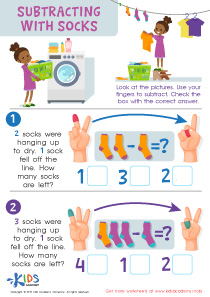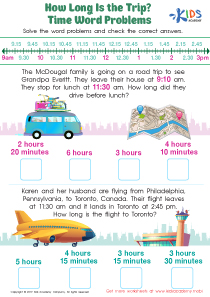Length and Mass Word Problems Worksheets for Ages 3-9
5 filtered results
-
From - To
Discover our Length and Mass Word Problems Worksheets, designed for children ages 3-9. These engaging and educational worksheets help young learners master fundamental concepts of measurement while solving real-life problems. Each worksheet features colorful illustrations and simple word problems that challenge kids to measure, compare, and calculate length and mass. By practicing these skills, children not only enhance their math abilities but also develop critical thinking and problem-solving skills. Perfect for classroom activities or at-home practice, our worksheets make learning fun and effective. Spark your child's curiosity and boost their confidence in math today!
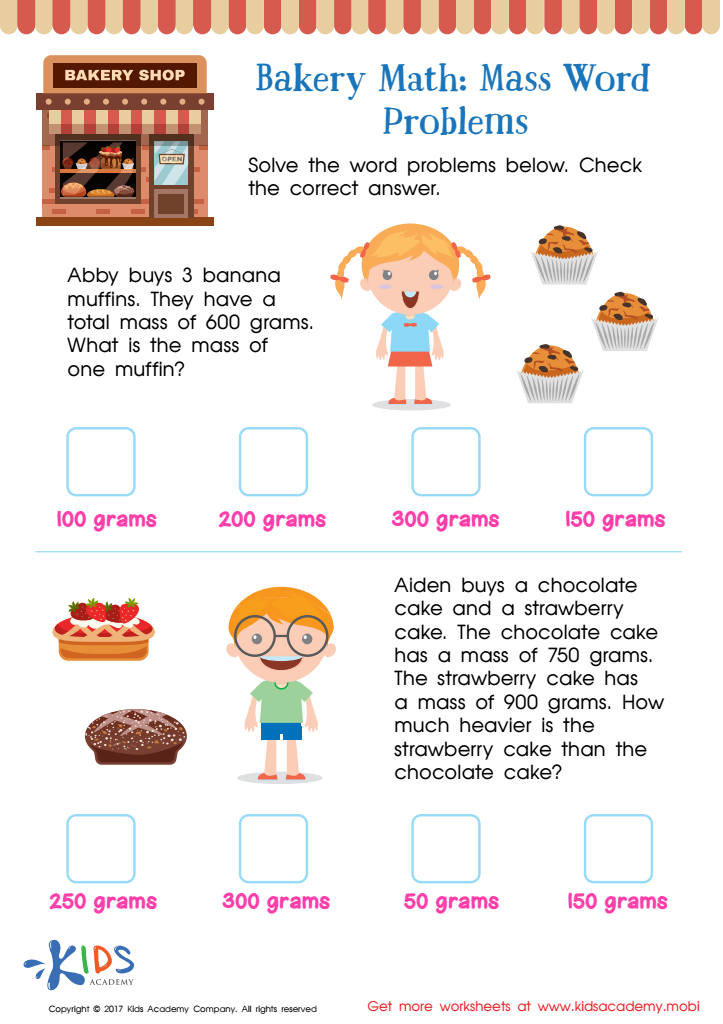

Mass Word Problems Worksheet
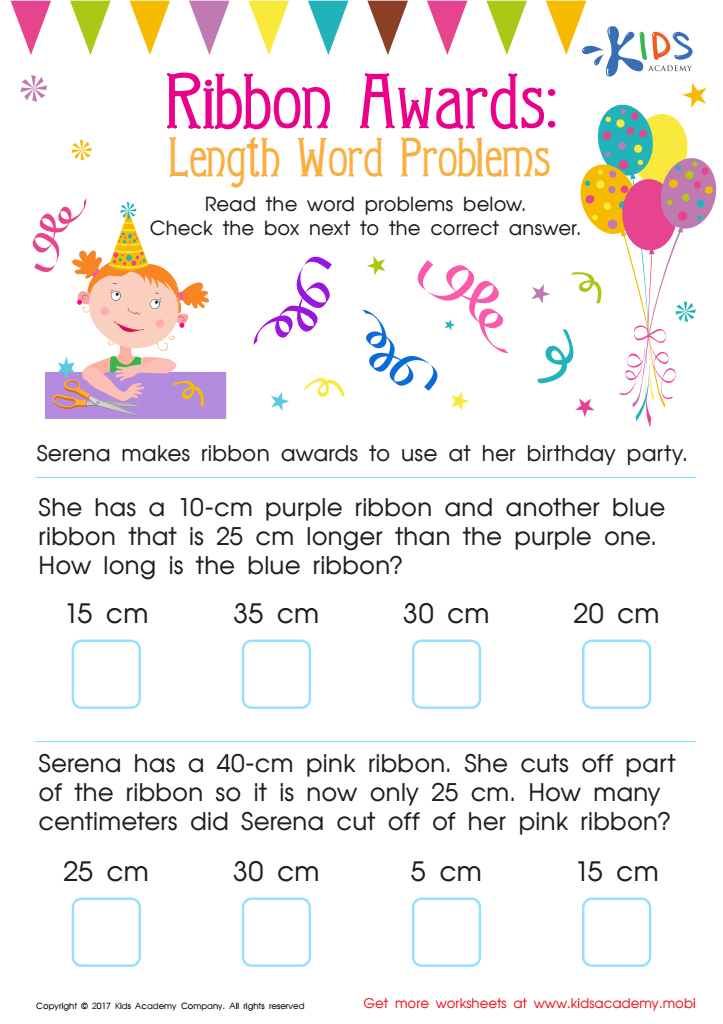

Length Word Problems Worksheet
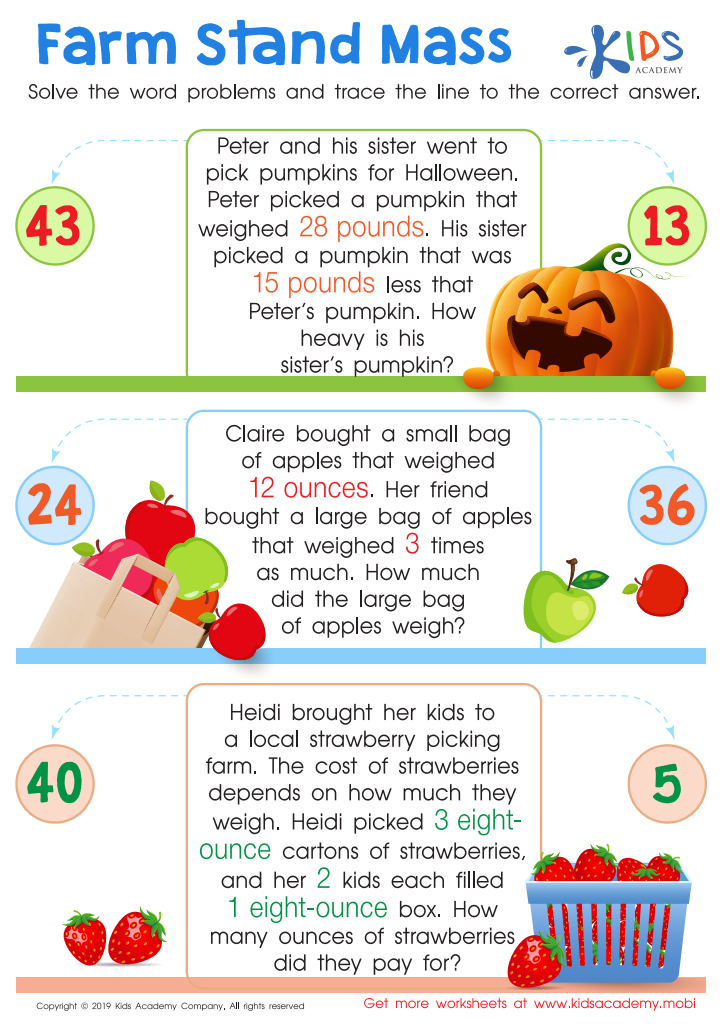

Farm Stand Mass Worksheet
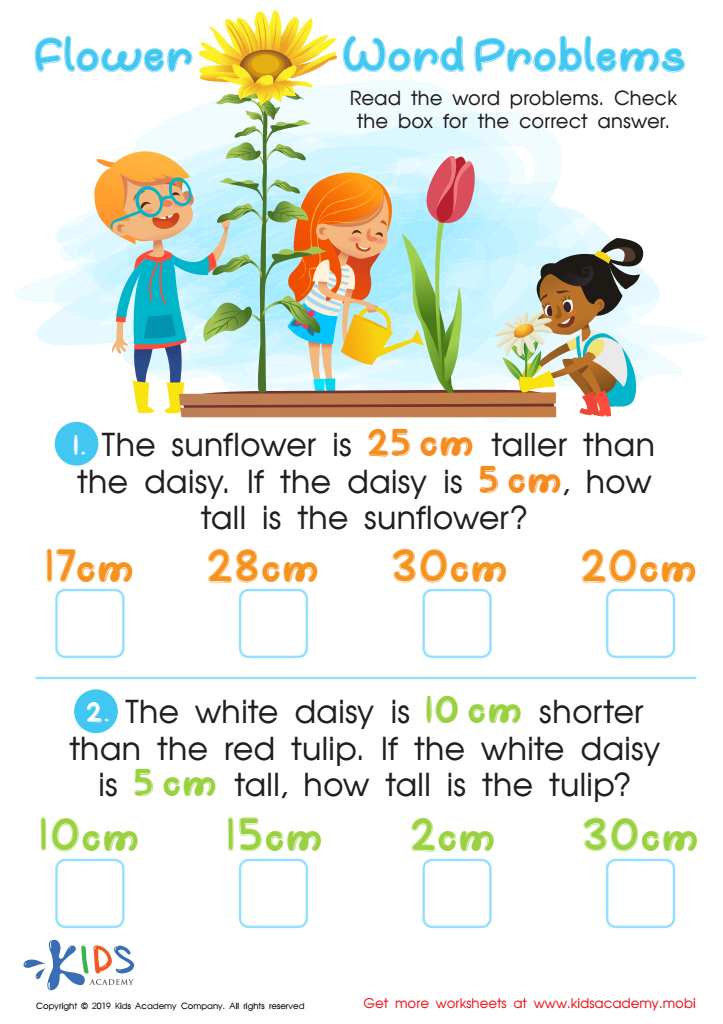

Flower Word Problems Worksheet
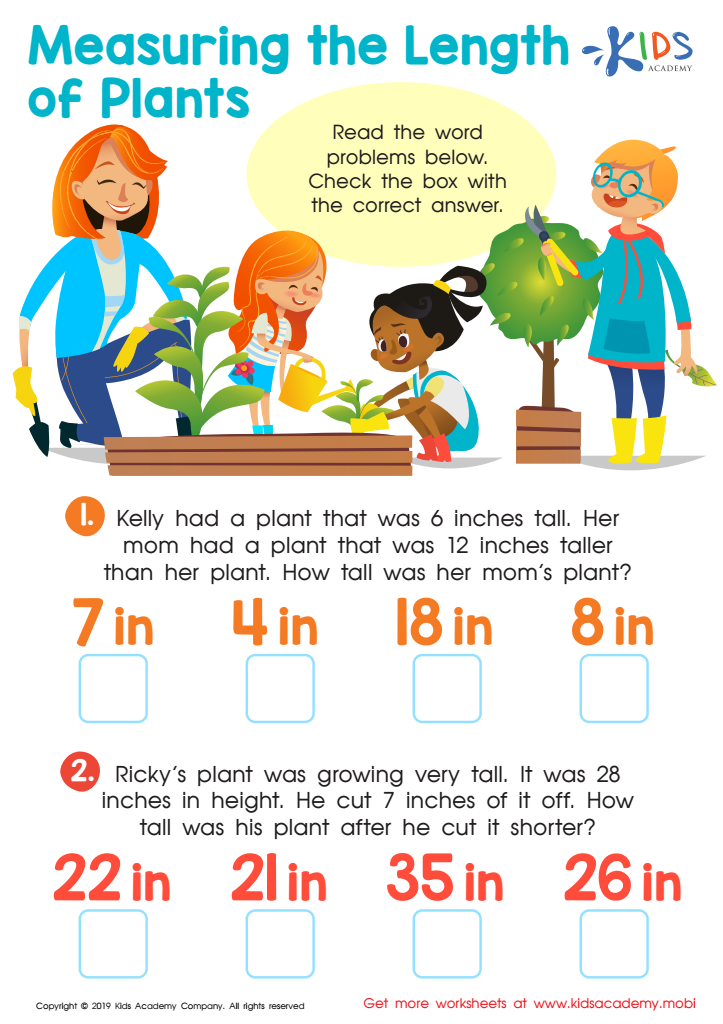

Measuring the Length of Plants Worksheet
Understanding length and mass word problems is crucial for children ages 3-9 because it builds foundational math skills and enhances everyday decision-making abilities. For young learners, solving these problems strengthens key concepts such as measurement, comparison, and basic arithmetic (addition, subtraction).
Firstly, length and mass word problems facilitate hands-on learning, allowing children to apply classroom knowledge to real-world situations. This active engagement helps concepts stick. For example, figuring out if a toy can fit on a shelf teaches spatial awareness and measurement.
Secondly, these problems develop critical thinking. While solving them, kids must comprehend the question, identify relevant information, and employ the appropriate math operations. This process encourages logical reasoning and problem-solving skills, which are indispensable in academic life and beyond.
Moreover, early exposure to measurement concepts demystifies science and arithmetic subjects, laying a strong groundwork for advanced STEM education. Word problems also improve language skills by requiring children to read, interpret, and express mathematical ideas.
Parents and teachers should prioritize length and mass word problems because they foster an early appreciation for mathematics, support intellectual development, and equip children with the tools they need to navigate complex tasks successfully. Ultimately, these skills not only enhance academic performance but also enrich everyday life competencies.
 Assign to My Students
Assign to My Students



